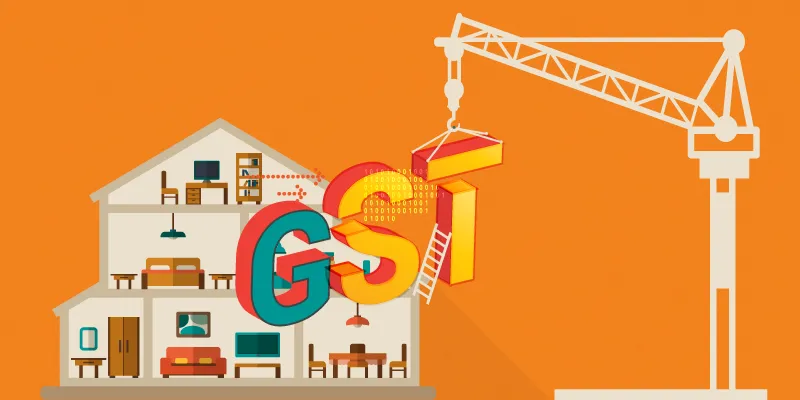18 pc GST hurts the online home services industry
UrbanClap and Housejoy have seen business take a hit due to the 18 percent GST imposed on housekeeping services booked online. The heads of the companies are hoping for a change in the GST rate when the GST Council meets on January 18.
It is not often that you find the heads of two competing companies agreeing on something. But imposition of 18 percent GST on housekeeping services booked online has been reason enough for Abhiraj Bhal, Co-founder of UrbanClap, and Saran Chatterjee, CEO of Housejoy, to join hands, and for good reason.
Housekeeping services makes up about 30 percent of UrbanClap’s business, while for Housejoy, services like plumbing and carpentry make up 30 percent, while beauty services make up another 25 percent. Such high taxes have a direct impact on these companies’ growth and earning potential. The issue is this tax is not applicable if the same service is booked offline.

The duo has sent a representation to the government for GST relief, through industry body Nasscom. The last GST Council meet before the Union Budget is scheduled for January 18 and both Abhiraj and Saran are hoping a roll back on GST on housekeeping services booked online will be announced then.
This differential pricing between offline and online is unfair. We have requested for parity between offline and online players. In our representation we have said if you want to create differential taxing, then make it five percent. At 18 percent you are killing the golden goose as the service providers and customers will then opt not to use online. If it all goes back to cash transactions, then what’s the point of pushing Digital India,” asks Abhiraj.
As per GST rules those earning less than Rs 20 lakh annually do not have to pay GST. Most housekeeping service providers on UrbanClap and Housejoy earn far lower than this threshold. It was on August 22, 2017 that the government, through a notification, imposed 18-percent GST on housekeeping services booked online even if the service provider earns lower than Rs 20 lakh annually.
Marketplaces globally have done well as they have been price-competitive. In our case we are not priced competitively to other options due to the 18-percent tax. It is a huge impediment to scaling up. We are not able to change the habit or scale up faster,” says Saran.
UrbanClap and Housejoy act as marketplaces connecting service providers—ranging from plumbers and carpenters to beauticians—with consumers. These platforms work on the basis of commissions.
They help service providers reach out to a new and wider customer base. But, with the imposition of GST, service providers say they would rather not use online platforms.
“With these new online players, I could get newer customers and make extra money. But with GST and the hassles it is creating now, I don’t see the point. When I get a customer through these online players, I now tell them to contact me directly the next time as it is cheaper without GST," says Shalini (who did not want to disclose her surname), who used to work for a salon in Bengaluru and used to earn Rs 25,000 a month. She started doing freelance work with the online platforms and began earning about Rs 35,000 a month. Shalini continues to freelance with regular salons.
Mani, a carpenter in Chikpet, Bengaluru, also says he now tells customers who booked him through UrbanClap, Housejoy or Quikr to reach out to him directly. “I have explained to them (customers) the disadvantages of going via an app. I have told them that they have to pay extra. And everyone in the end wants to save money,” says Mani, who did not want his full name to be disclosed.
UrbanClap is passing on the GST to customers. Since Housejoy has exclusive partnerships with individual freelancers in the beauty services category, it bears the extra cost.
Both say the companies cannot bear the costs in the long term as their margins are around 20 percent on average on these services. If they pass it on to customers, they will move away from such online platforms. If the service providers are asked to bear the burden, then they will stop using the platforms.
In their joint representation, the two companies have requested for:
- Withdrawal of notification no. 23/2017- Central Tax (which amended notification no 17/2017- Central Tax) thereby removing ‘housekeeping services’ from the list of specified services ( specified under Section 9(5) of CGST law). This would bring these services at par with other services on which benefit of threshold would be available even when provided through e-commerce operator.
- Where the above is not feasible (given the inclination of government to maintain administrative control on these services), it is suggested that the rate of tax should be reduced to five percent on such services, wherever the annual turnover of a service professional is less than Rs 20 lakh, and the consideration flows through the marketplace. If the annual turnover of the service professionals exceeds Rs 20 lakh and the consideration flows through the marketplace, the tax rate levied can be retained at 18 percent.
They have also asked for removal of Tax Collected at Source as the “compliance requirements involved are extremely onerous and time consuming both for the service e-commerce companies as well as persons providing services through online platforms”.
Both Abhiraj and Saran are expecting a positive outcome on January 18 as the officials they have met over the past few months have been supportive. “We have done at least 10 meetings with various officials and I am impressed with the level of homework they have done. They accepted this is an area of concern but have not made any promises, which is understandable,” says Abhiraj.
Saran echoes this view. “Government has been very understanding. We are hoping for a favourable outcome,” he says.



![[Startup Bharat] Meet the 3 friends who turned entrepreneurs with a baby apparel company](https://images.yourstory.com/cs/2/b87effd06a6611e9ad333f8a4777438f/beelittle-1644327786164.png?mode=crop&crop=faces&ar=16%3A9&format=auto&w=1920&q=75)



